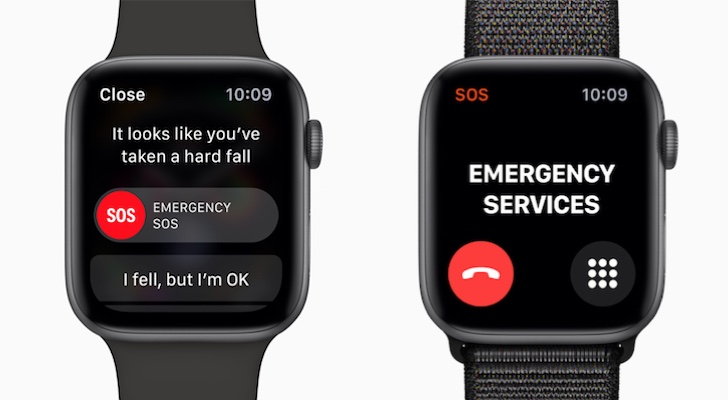Apple (NASDAQ:AAPL) has finally revealed its new iPhones. Without a doubt, the three new models are going to result in some spectacular numbers for the company. That should push AAPL stock even higher. But the most exciting new product Apple announced on September 12 may not have been an iPhone. The Apple Watch Series 4 could turn out to be the big hit of the event.
At $399 for the Wi-Fi version and $499 for the LTE model, the Apple Watch Series 4 brings in a fraction of the revenue of a $1099 iPhone XS Max. But key new health features Apple added to its latest smartwatch could open a huge new market for the device, one that has significant upside for sales and AAPL stock.
Apple Watch Series 4 Turns Its Focus to Health
When it comes to smart wearables, health and fitness have traditionally been lumped together. The heart rate sensor that’s become a mainstay in offerings from Apple, Fitbit (NYSE:FIT) and others is a perfect example of how trackers and smartwatches combine the two. It’s used while tracking heart rate during exercise, but also has other health applications — the Apple watch can warn a wearer if their heart rate unexpectedly spikes.
A year after AAPL first released its smartwatch, Apple Watch sales weren’t looking great and the future of the device seemed questionable. But the company pivoted and focused on fitness applications, including a partnership with Nike (NYSE:NKE). That strategy has paid off with a big increase in Apple Watch sales — 18 million units for 2018, up 54% over 2017.
With the Apple Watch Series 4, Apple is continuing to push fitness capabilities, with features like automatic workout detection, coaching and head-to-head competitions. But the headline features of the new Apple Watch are focused on health: integrated ECG (electrocardiogram) functionality, and fall detection with emergency SOS.
This opens big new markets for Apple. Its not just technology and fitness buffs who will be eyeing the Apple Watch Series 4. The latest Apple Watch is now positioned to appeal to a huge demographic, an aging population concerned about heart health and falling.
Heart Disease and Falling
Falling is a big concern in an aging population. Falls can lead to serious injury and if a senior lives alone, they may be injured by a fall and unable to reach a telephone to call for help.
Last year, Consumer Reports looked at companies selling medical alert systems. These are GPS and cellular connected wearables with an emergency button that summons help. The first option listed (Bay Alarm Medical) has monthly fees of $35 for cellular service, $30 for GPS, and $10 for fall detection. That’s $75 per month ($900 per year), compared to $499 for an LTE-equipped Apple Watch Series 4 — with an SOS feature and fall detection — and $10 per month for cellular service…
The main differences? These dedicated systems are monitored (so that SOS goes to a live dispatcher), and the trigger is a physical button instead of the extra action needed to slide the SOS button on the Apple Watch.
An even bigger target is heart disease, the leading cause of death among both mean and women in the U.S.
Apple adding an advanced electrical heart sensor to the Apple Watch was a canny move. The upgraded optical hear rate sensor is still there to track heart rate for fitness, and to warn of unusual spikes. But the new sensor gives users access to an on-demand ECG. The Apple Watch ECG can detect arrhythmias (irregular heart rhythms) that can be a sign of an underlying heart condition. The data is then tracked in the Health application and can be shared with a doctor to help in a diagnosis. This test is typically done in a lab, with electrodes and specialized equipment. That takes time, and often money. The Apple Watch Series 4 makes it possible for wearers to run that ECG test any time they want.
According to the CDC, 735,000 Americans have a heart attack every year, and 610,000 people die of heart disease.
The Apple Watch ECG isn’t meant as a monitoring device for existing heart patients (as The Verge points out, that would require much more rigorous testing for FDA approval). Instead, it’s aimed at people who are concerned about the potential for heart disease and want to get ahead of it before they have a heart attack. There are 74 million baby boomers in the U.S., a demographic that has money to spend and an increased focus on both fitness and health.
With the Apple Watch Series 4 and its new health capabilities, Apple is positioned to continue capturing fitness and technology enthusiasts. But it also has the features to go after an even bigger market: an aging population that’s concerned about health issues like falls and heart disease. The impact of this latest pivot on Apple Watch sales, Apple revenue and AAPL stock could be considerable.
As of this writing, Brad Moon did not hold a position in any of the aforementioned securities.

